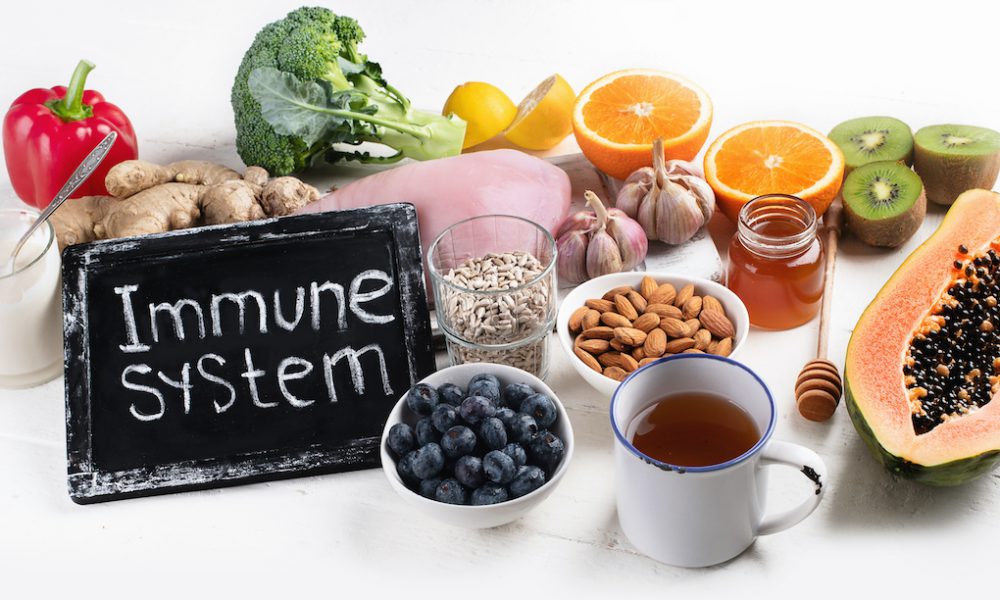The immune system is our body’s defense mechanism against infections and illnesses, and ensuring its optimal function is essential for maintaining overall health. One of the key ways to support immune function is through the consumption of vital nutrients. These nutrients play a direct role in strengthening the body’s ability to fight off harmful pathogens.

Adequate intake of vitamins, minerals, and other nutrients is critical for immune system support. By focusing on the immune system support provided by these essential nutrients, you can help your body stay resilient and better equipped to handle various health threats. In this article, we will explore the vital nutrients that support the immune system and how they contribute to a healthier, more robust immune response.
Key Vitamins for Immune System Support
Vitamin C: The Immune Boosting Powerhouse
Vitamin C is one of the most well-known and essential nutrients when it comes to immune system support. It acts as a powerful antioxidant, protecting cells from oxidative stress that can weaken immune responses.
Additionally, vitamin C enhances the production of white blood cells, which are crucial for fighting off infections. Foods rich in vitamin C, like oranges, strawberries, and bell peppers, help ensure your immune system stays strong and functional.
Vitamin D: A Vital Immune Regulator
Vitamin D plays an important role in immune system support, particularly in regulating the body’s immune responses. It helps activate T-cells, which are essential for detecting and eliminating infections.
A deficiency in vitamin D can impair immune function, making the body more susceptible to illness. To maintain adequate levels of vitamin D, it’s important to get regular sunlight exposure and consume foods such as fatty fish, fortified dairy, and eggs.
The Role of Minerals in Immune Health
Zinc: Essential for Immune Function
Zinc is another vital nutrient for immune system support. It contributes to the development and activation of T-cells and helps in the production of antibodies to fight infections.
This mineral also plays a role in wound healing and reducing inflammation. Foods like beans, nuts, and seeds, along with lean meats, are rich sources of zinc that can help maintain immune health.
Iron: Vital for Oxygen Transport
Iron is necessary for the formation of hemoglobin, the protein in red blood cells that carries oxygen throughout the body. Adequate iron levels are crucial for optimal immune system support.
Iron helps in the function of immune cells that rely on oxygen to carry out their activities. Iron-rich foods, such as spinach, red meat, and lentils, should be included in your diet to ensure your immune system operates effectively.
The Importance of Omega-3 Fatty Acids
Omega-3 Fatty Acids and Inflammation
Omega-3 fatty acids are essential fats that help support the immune system support by reducing inflammation in the body. Chronic inflammation can impair immune function, making it harder for the body to respond to infections.
By consuming omega-3-rich foods, such as fatty fish, flaxseeds, and walnuts, you can help reduce this inflammation. This, in turn, allows the immune system to function more efficiently and respond better to external threats.
Supporting Immune Cell Function
Omega-3 fatty acids also contribute to the production and function of immune cells. They help regulate the balance of immune responses, ensuring that the body does not overreact to harmless substances.
Consuming an adequate amount of omega-3s provides the necessary nutrients for your immune system to function at its peak, supporting your overall health.
Antioxidants for Immune System Support
The Role of Antioxidants in Immune Function
Antioxidants, like those found in vitamins A and E, play a crucial role in immune system support by neutralizing free radicals in the body. These free radicals can damage cells and impair immune function if left unchecked.
By incorporating antioxidant-rich foods into your diet, you protect your cells and help maintain a robust immune system. Fruits and vegetables like carrots, sweet potatoes, and spinach are great sources of these vital nutrients.
Protecting Immune Cells from Damage
Antioxidants help shield immune cells from oxidative damage, allowing them to perform their functions effectively. This protection enhances your immune system’s ability to fight infections and reduces the risk of chronic illnesses.
For optimal immune health, it’s important to include a variety of colorful fruits and vegetables in your diet to ensure you are getting a broad range of antioxidants.
Hydration: A Vital Component of Immune Support
Hydration and Immune Function
While not often discussed alongside vitamins and minerals, hydration is an important aspect of immune system support. Water is essential for maintaining cellular function, including the optimal function of immune cells.
Dehydration can hinder the body’s ability to produce mucus and other fluids that trap and remove pathogens from the body. Drinking enough water throughout the day ensures that your immune system can perform at its best.
Supporting the Body’s Detoxification Processes
Proper hydration also aids in detoxifying the body, helping to flush out toxins and waste products that could otherwise weaken the immune system. Staying hydrated supports your overall health, allowing nutrients to be transported more efficiently to immune cells.
Make sure to drink plenty of water, herbal teas, and other hydrating fluids to maintain optimal hydration levels, which in turn support a healthy immune system.
Conclusion, Supporting your immune system with the right nutrients is one of the best ways to ensure overall health and wellness. From vitamins and minerals to omega-3 fatty acids and antioxidants, each nutrient plays a specific role in boosting immune function and protecting the body against illness.
By consuming a well-rounded diet rich in these vital nutrients, you can promote your body’s natural defense system and reduce the risk of infections. Regularly focusing on immune system support through proper nutrition, hydration, and lifestyle choices will help keep you strong and resilient in the face of health challenges.